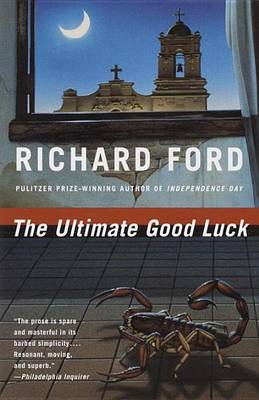Flamingo S.
4 total works
Ford's mesmerizing first novel is the story of two godless pilgrims. Robard Hewes has driven across the country in the service of a destructive passion. Sam Newell is seeking the missing piece of himself. When these men converge, on an uncharted island in the Mississippi, each discovers the thing he's looking for--amid a conflagration of violence that's as shocking as it is inevitable.
"This is one of those books that hit you hard...a story filled with breathing characters and genius-crafted dialogue between moments of consummate description.... I can't be unbiased. I'm mad for this book."--Elizabeth Ashton, Houston Chronicle
"This is one of those books that hit you hard...a story filled with breathing characters and genius-crafted dialogue between moments of consummate description.... I can't be unbiased. I'm mad for this book."--Elizabeth Ashton, Houston Chronicle
As a sportswriter, Frank Bascombe makes his living studying people--men, mostly--who live entirely within themselves. This is a condition that Frank himself aspires to. But at thirty-eight, he suffers from incurable dreaminess, occasional pounding of the heart, and the not-too-distant losses of a career, a son, and a marriage. In the course of the Easter week in which Ford's moving novel transpires, Bascombe will end up losing the remnants of his familiar life, though with his spirits soaring.
The stories in this celebrated collection are about ordinary women, men and children. Unemployed, on the way back to prison, marriages in tatters, they confront their fates with hard-won optimism, humour and flashes of insight.
In this novel of menace and eroticism, Richard Ford updates the tradition of Conrad for the age of cocaine smuggling. The setting is Oaxaca, Mexico, where Harry Quinn has come to free his girlfriend's brother, Sonny, from Jail and, ideally, to get him away form the suavely sadistic drug dealer who suspects Sonny of having cheated him.
"His prose has a taut, cinematic quality that bathes his story with the same hot, mercilessly white light that scorches Mexico."--New York Times Book Review
"His prose has a taut, cinematic quality that bathes his story with the same hot, mercilessly white light that scorches Mexico."--New York Times Book Review


